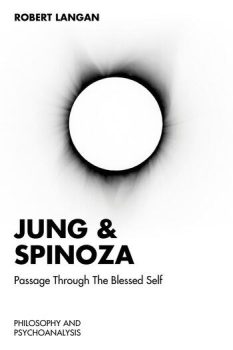This volume presents the first major study of C.G. Jung’s curious relationship with the philosophy of Baruch Spinoza.
Although Jung scarcely mentions Spinoza in his work, there is an unmistakable accord between the core ideas of both thinkers, most notably regarding Spinoza’s theory of God and the monism found in Jung’s writings. Exploring why Jung shows ambivalence towards Spinoza despite their affinity, Robert Langan argues that Spinoza offers Jung a radical solution to problems in his psychology. What results is a new interpretation of Jung’s metaphysics, the evidence for which has gone unheeded in Jungian Studies to date. Ultimately for both Jung and Spinoza, knowledge of the self leads to knowledge of the Divine, and it is this championing of a ‘transcendental immanence’ that makes Jung an unlikely yet consummate Spinozist.
Jung & Spinoza will be of interest to continental philosophers and depth psychologists who wish to bridge their respective fields, as well as general audiences interested in the ideas of both thinkers.
Table of Contents
Introduction 1. Matter, Psyche, Spirit: The Lost Aspect of C.G. Jung’s Monism 2. C.G. Jung, the Unlikely Spinozist I: The Meeting at the Middle Third 3. C.G. Jung, the Unlikely Spinozist II: Affective Knowledge 4. C.G. Jung, the Unlikely Spinozist III: Outbound Connections 5. Archetypal Compositions 6. We are the Third, God is the Fourth: On the Univocal Psyche & the Blessed Self Conclusion


